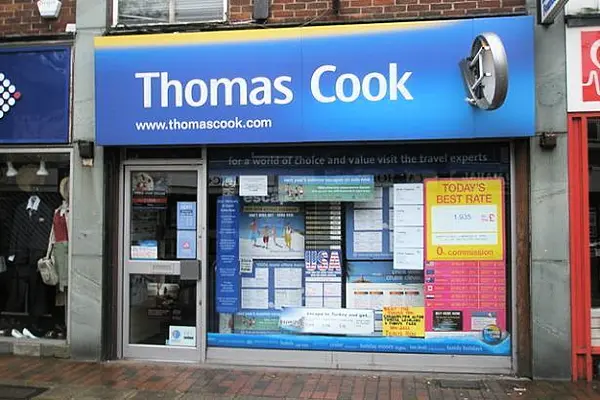Travel company Thomas Cook edged closer to a break up this week after its biggest shareholder, China's Fosun Tourism, made a preliminary approach for the British group's core holiday operations.
The 178-year-old company, battered by fading demand for its package holidays, high debt and a hot 2018 summer in Europe which deterred bookings, is also weighing approaches for its airline business and Nordic operations as it seeks to raise cash.
Shares in Thomas Cook rose more than 13% to give the company a market valuation of approximately £280 million.
Hong Kong-listed Fosun Tourism already has a presence in the European market through its ownership of the Club Med holiday business, and has an 18% stake in Thomas Cook.
Were it to succeed in buying the British company's hotel and resort business, it would mark one of the most significant purchases of a British company by a Chinese group in years.
The tour operator business of Thomas Cook had 11 million customers in 2018, producing £7.4 billion in revenue. That compared with revenue of £3.5 billion for the airline business, although the airline has a higher margin.
Thomas Cook has been forced to act after it stumbled badly last year when a heatwave in northern Europe deterred holiday-makers from booking lucrative last minute deals, leading to three major profit warnings in less than a year and talk of a need to raise funds.
It said in February it was willing to sell its airline business, which includes German holiday carrier Condor, to enable it to focus on its tour operations, which include owning its own hotels and resorts and securing capacity in others.
Thomas Cook said there was no certainty the Fosun approach would lead to a formal offer, and it would consider any bid alongside the other strategic options that it has, to raise as much value as possible for stakeholders.
Fosun Activity
Fosun Tourism has been purchasing tourism assets, including France's Club Med, as the industry is viewed as key to China's shift towards a more consumption-driven model of economic growth from an investment and export-led one.
But like its domestic peers including HNA Group, Fosun, China's largest privately held conglomerate, has faced increasing scrutiny from Beijing for debt-fueled, big-ticket foreign deals in recent years.
It said earlier this year that it will adopt an asset-light strategy and run under management contracts the Club Med resorts it plans to launch in China and other countries.
In 2015, Thomas Cook and Club Med said they would look at sharing European flights to destinations while Thomas Cook and Fosun have a joint venture in China.
Fosun could not buy the airlines business because it must be majority owned by European Union nationals to operate flights within the bloc.
News by Reuters, edited by Hospitality Ireland. Click subscribe to sign up for the Hospitality Ireland print edition.









